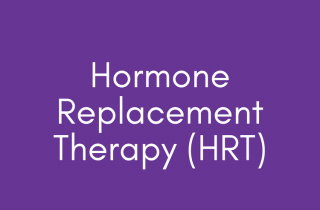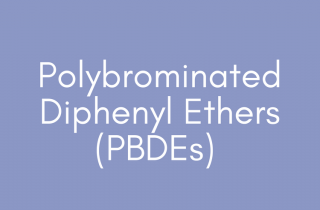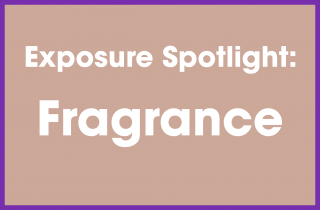Infertility Treatment Drugs
At a Glance
No clear link has been established between infertility treatments overall and breast cancer risk. A recent study did show an increase in breast cancer risk for women who started infertility drug treatments before the age of 24, and a link has been found for women treated with high doses of the infertility treatment drug clomiphene citrate.
Additional research should continue to examine the safety of infertility treatments, particularly for women who are BRCA positive.
What are infertility treatment drugs and where are they found?
Infertility treatment drugs are used for ovulation stimulation. They are a type of pharmaceutical medication used to treat infertility in women. Typically, infertility is defined as not being able to conceive after one year of unprotected sex.[1]
What evidence links infertility treatment drugs to breast cancer?
Substantial evidence links other hormone-based treatments such as hormone replacement therapy (HRT) and oral contraceptive use with increased incidence of breast cancer. Thus far, research suggests that neither sub-fertility nor the general use of infertility-treatment drugs increases breast cancer risk.[2],[3],[4],[5] This is also true when the study involves infertile women who are BRCA carriers.[6]
- Where the link has been found, it has been for women who gave birth to twins or other multiples as a result of their IVF treatment[7] and those who have been treated with high doses of certain medication (clomiphene citrate).[8]
- Two studies found increased risk of breast cancer for women who have been treated for ovarian infertility with drugs including gonadotropins or clomiphene citrate. However, the results were significant only when the incidence of breast cancer was compared with the general population of women, but not with the more appropriate control of women with ovarian infertility who have not been treated with fertility drugs.[9], [10]
- Two other studies, however, have found statistically significant increases in breast cancer rates in women taking a specific drug, clomiphene citrate, compared with rates for infertile women taking no infertility treatment.[11]
- A smaller subgroup of women whose infertility was not ovarian in origin and who underwent multiple treatments with high doses of clomiphene citrate, had increased risk of later developing breast cancer compared with women in the general population.[12]
- Another study found that within the cohort of women with fertility problems, there was no difference in the rate of breast cancer when general comparisons were made between women who had taken fertility drugs and those who had not. When age of treatment was considered, a significant increase in risk for breast cancer was found in women who had begun infertility drug treatments before the age of 24, as compared with infertile women of the same age who did not use infertility drugs. Increased risks for breast cancer were not associated with infertility treatment in women older than 40 who underwent in vitro fertilization protocols.[13]
- A Dutch study using two nation-wide health data bases found that IVF treatment did not increase risk for breast cancer in women who carried the BRCA1/2 mutations.[14]
- While many studies have examined possible effects of IVF treatment on breast cancer risk in women who are undergoing infertility treatment, there is virtually no research on women who undergo similar ovarian stimulation as egg donors for others. Donors tend to be younger and fertile, often undergoing the ovarian stimulation treatments a decade or more earlier than do infertile IVF seekers. A recent case study reported 5 egg donors who began ovarian stimulation in their 20’s and early 30’s and developed breast cancer within 5-8 years of initial stimulation. These results indicate the need for research on possible links between ovarian stimulation and breast cancer in young fertile women who undergo ovarian stimulation in. order to provide donor eggs for others.[15]
Who is most likely exposed to infertility treatment drugs?
Women who are experiencing infertility and who are prescribed medication to treat the condition.
Who is most vulnerable to the health effects of infertility treatment drugs?
Women treated with the infertility drug clomiphene citrate have been found to have an increased risk of breast cancer.
What are the top tips to avoid exposure?
- Discuss treatment options with your medical care team and whether there are alternatives to infertility treatment drugs.
- Discuss the health outcomes of specific infertility drugs with your medical team.
Updated 2019
[1] CDC: Centers for Disease Control and Prevention. (2016). Reproductive Health. Infertility FAQs. Available online: http://www.cdc.gov/reproductivehealth/Infertility/index.htm. Retrieved December 3, 2016.
[2] Gauthier, E., Paoletti, X., Clavel-Chapelon, F., E3N group. (2004). Breast cancer risk associated with being treated for infertility: results from the French E3N cohort study. Hum Reprod, 19:2216–21.
[3] Klip H, Burger CW, Kenemans P, van Leeuwen FE. (2000). Cancer risk associated with subfertility and ovulation induction: a review. Cancer Causes Control, 11:319–44.
[4] Orgéas CC, Sanner K, Hall P, et al. (2009). Breast cancer incidence after hormonal infertility treatment in Sweden: a cohort study. Am J Obstet Gynecol, 200:72.e1–7.
[5] Kessous R, Davidson E, Meirovitz M, Sergienko R, Sheiner E. (2016). The risk of female malignancies after fertility treatments: a cohort study with 25-year follow-up. J Cancer Res Clin Oncol, 142:287–93.
[6] Kotsopoulos J, Librach CL, Lubinski J, et al. (2008). Infertility, treatment of infertility, and the risk of breast cancer among women with BRCA1 and BRCA2 mutations: a case-control study. Cancer Causes Control, 19:1111–19.
[7] Krul IM, Groeneveld E, Spaan M, et al. (2015). Increased breast cancer risk in in vitro fertilisation treated women with a multiple pregnancy: a new hypothesis based on historical in vitro fertilisation treatment data. Eur J Cancer, 51:112–20.
[8] Orgéas CC, Sanner K, Hall P, et al. (2009). Breast cancer incidence after hormonal infertility treatment in Sweden: a cohort study. Am J Obstet Gynecol, 200:72.e1–7.
[9] Brinton LA, Scoccia B, Moghissi KS, et al. (2004). Breast cancer risk associated with ovulation-stimulating drugs. Hum Reprod, 19:2005–13.
[10] Silva I dos S, Wark PA, McCormack VA, et al. (2009). Ovulation-stimulation drugs and cancer risks: a long-term follow-up of a British cohort. Br J Cancer, 100:1824–31.
[11] Lerner-Geva L, Keinan-Boker L, Blumstein T, et al. (2006). Infertility, ovulation induction treatments and the incidence of breast cancer¾a historical prospective cohort of Israeli women. Breast Cancer Res Treat, 100:201–12.
[12] Orgéas CC, Sanner K, Hall P, et al. (2009). Breast cancer incidence after hormonal infertility treatment in Sweden: a cohort study. Am J Obstet Gynecol, 200:72.e1–7.
[13] Stewart LM, Holman CDJ, Hart R, Bulsara MK, Preen DB, Finn JC. (2012). In vitro fertilization and breast cancer: is there cause for concern? Fertil Steril, 98:334–40.
[14] Derks-Smeets IAP, Schrijver LH, de Die-Smulders CEM, Tjan-Heijnen VCG, van Golde RJT, Smits LJ, et al. Ovarian stimulation for IVF and risk of primary breast cancer in BRCA1/2 mutation carriers. British Journal of Cancer. 2018;119(3):357–63.
[15]Schneider J, Lahl J, Kramer W. Long-term breast cancer risk following ovarian stimulation in young egg donors: a call for follow-up, research and informed consent. Reprod BioMed. 2017;34:480–5.




